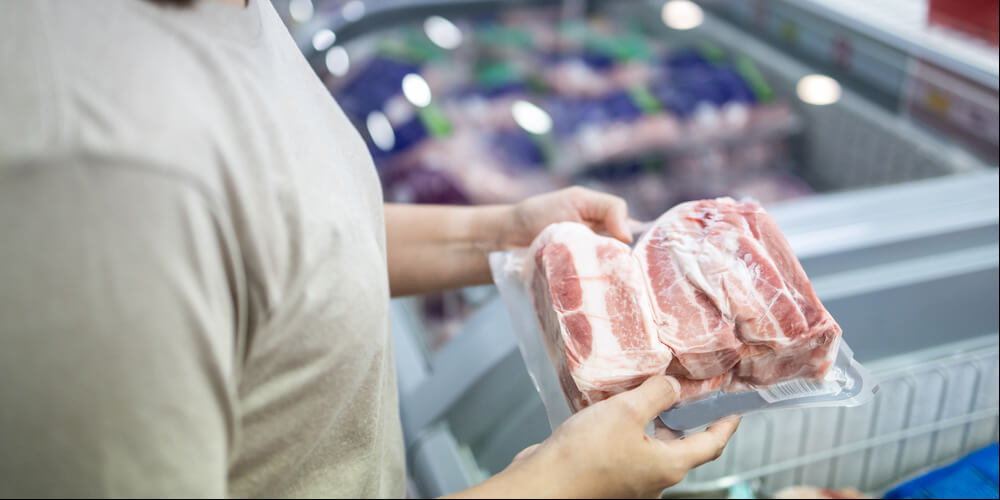Clear halal and stunning labelling needed to help consumers choose meat, say animal rights and halal groups
Consumers have the right to know if meat has been pre-stunned or not.
Brussels: European consumers need to be offered clear labelling so they only buy halal meat, especially from animals not pre-stunned before slaughter, if they choose, animal rights organisations and halal groups say.
“It would be helpful if all meat was labelled pre-stunned or not so people can make informed choices,” Nick Palmer, head of Compassion in World Farming UK, an animal welfare campaign and lobbying group, told Salaam Gateway.
He said it was undesirable for non-pre-stunned meat to be accidentally purchased by consumers who preferred to avoid it.
His comments come as the labelling issue was raised in the European Parliament. In a written parliamentary question, Greek European Conservatives and Reformists (ECR) MEP Emmanouil Fragkos asked about the “increasing number of Islamic butchers selling halal meat” in Greece. He claimed “Christians living in largely or primarily Muslim communities within which Islamic butchers operate, unfortunately find themselves obliged to consume halal meat against their will”.
However, there was no European Union (EU) legislation on meat labelling corresponding to religious practices to avoid this situation, a European Commission official told Salaam Gateway. EU member state regulators, religious authorities and non-governmental organisations have competence in this matter.
The official said it was up to consumers to decide whether or not they wanted to consume halal or non-halal food.
Palmer told Salaam Gateway the issue for animal welfare was not really halal meat, but meat from properly stunned animals. There was no animal welfare-related reason to object to halal if pre-stunning had happened, as was often the case.
However, Brussels still allowed slaughter without stunning, justified under the EU 2009 Council regulation on the protection of animals at the time of killing. This accommodated religious slaughter in slaughterhouses.
Fragkos said despite mounting pressure to stop this practice, on 18 June the Brussels regional parliament voted against a bill to ban halal and kosher slaughter in the Belgian capital. Slaughter without stunning was banned in the Belgian provinces Wallonia and Flanders in 2017 and 2019 respectively.
Palmer said a butcher deciding to only sell meat from pre-stunned animals may gain customers concerned about the issue while losing others. However, he had not heard that butchers found the issue unmanageable.
“Some will choose to sell all kinds of meat; others will specialise either for ethical or religious reasons, or simply a commercial judgement that one market is more profitable. As for consumers, many simply want the nearest convenient and affordable food,” he said.
He said typically religion did not enter people’s thoughts when deciding what to have for a family meal, and there would be crossover with some Muslims buying non-halal and some non-Muslims buying halal.
“However, an increasing number of consumers from all religions want to feel the animals have been treated well, including minimising suffering at slaughter, and the large quantity of halal meat coming from pre-stunned animals perhaps reflects that preference,” he said.
Meanwhile, Mohammed Salah Eldin, halal administrator at the Brussels-based Halal Federation of Belgium (HFB), said more butchers selling halal meat should not be an issue for Christians and non-Muslims.
The matter only affected a small number of customers and would not influence the market, he told Salaam Gateway. Belgium Muslims account for less than 500,000 people out of the country’s 11.6 million population and 10% of the EU and eastern Europe populations.
According to data from USA-based think tank Pew Research Centre cited by worldatlas.com, among the Western European countries, France (7.5%), Netherlands (6%) and Belgium (5.9%) had the greatest share of Muslims in their population in 2010.
However, neither EU statistical office Eurostat nor market researcher Euromonitor International possess figures on the proportion of halal meat sold in Europe, but Euromonitor figures show meat consumption (and thus the amount of halal meat sold) varies significantly country by country.
France consumes 824,200 tonnes of beef and veal and 85,400 tonnes of lamb, mutton and goat and Italy (725,700 tonnes of beef and veal and 54,200 tonnes of lamb, mutton and goat), effectively topping the table.
|
|
Eldin insisted halal was “a quality label and quality concept” and large French families often tried halal butchers, for poultry predominantly, as the meat was cheaper. Once discovering the quality, they remained with halal.
He said studies by the University of Ghent have argued stunning was not the main animal welfare concern, taking account of an animal or bird’s entire life. An older paper emphasised that Muslims bought meat considering all aspects of animal welfare and health.
Halal-slaughtered animals must have been fed a natural diet containing no animal by-products; properly transported to the slaughterhouse and slaughtered on their own.
“It is a ‘farm to fork’ issue,” he told Salaam Gateway, claiming non-halal meat was often slaughtered in industrial conditions by commercial businesses.
He agreed labelling and standards were essential to stop consumer confusion when buying meat. Halal meat should carry a halal certificate showing the animal had been slaughtered using a sharp knife and had lived according to halal conditions.
“We are working with the EU and animal rights groups like GAIA (Belgium-based Global Action in the Interest of Animals) to ensure proper halal standards.”
Eldin argued Muslims were not obliged to eat halal, but health-wise it was better for them.
Meanwhile the popularity of halal meat was undeniable and Brussels boasted not only halal butchers, but also halal pizzerias and snack bars.
Islamic butchers Boucherie Nassiri in Forest (or Vorst in Dutch), Brussels, told Salaam Gateway his meat carried no official certificate, but “everyone knows the meat is halal” as it is written on the shop sign (in Arabic) on the door.
“We also have halal meat written on our bills,” he said, adding his customers are both Muslims and non-Muslims.
© SalaamGateway.com 2022. All Rights Reserved


Liz Newmark